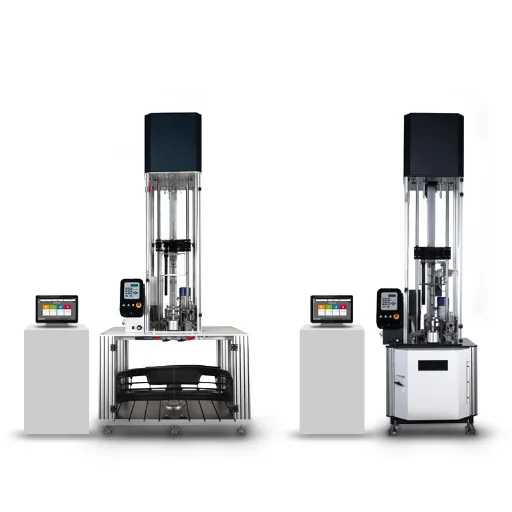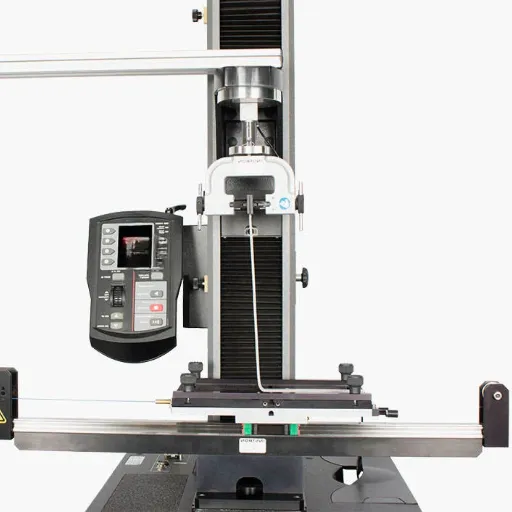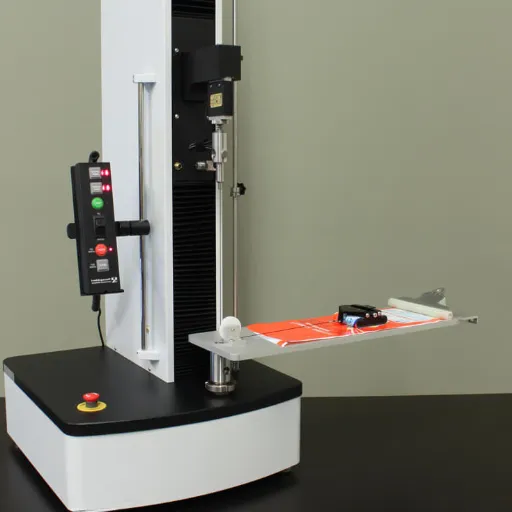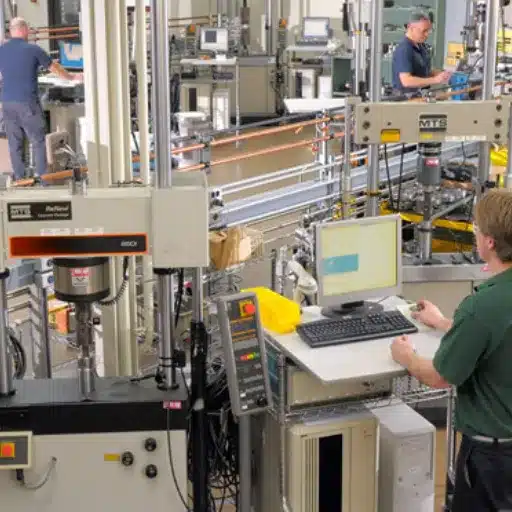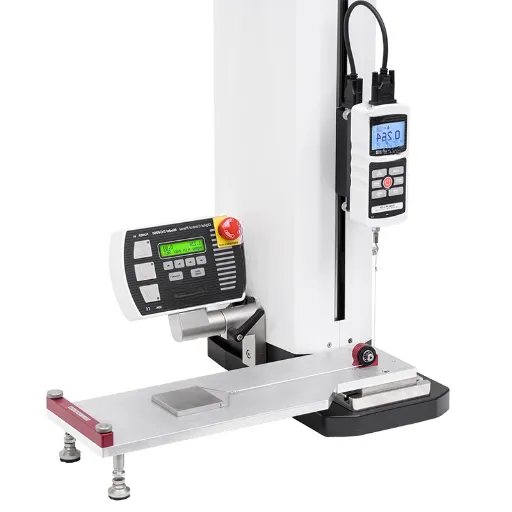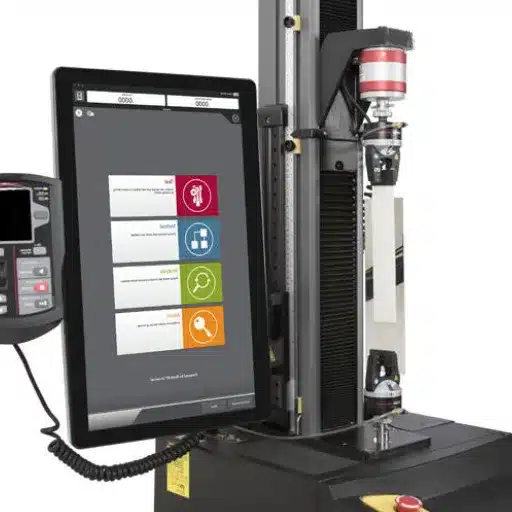It is a vast and rapidly evolving world of polymer and plastic materials, which are used massively in every industry, from automotive to health care. With all these advancements, the need for accurate and trustworthy testing has increased to test the proper performance, durability, and safety of these materials. Polymer and plastic testing instruments come into the picture, an array of innovations amongst which is kept to the stringent choices offered by modern material testing. This blog post will put the newest advances in polymer testing equipment in the spotlight and show how the newest instruments are helping industries in assessing material properties. From tensile strength testing to thermal analysis, we will explore the instruments and techniques that greatly refashion the methods of quality control and product development. Whether you are a materials scientist, an engineer, or a professional in the industry, this guide will shore up your knowledge about various advances in polymer testing.
Overview of Polymer Testing
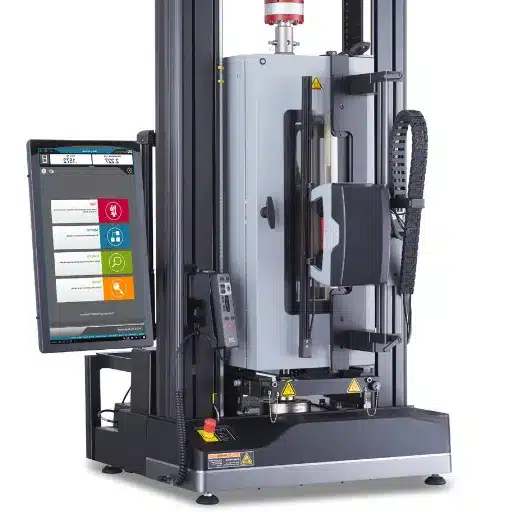
Polymer Analysis: A Watchword
Polymer analysis is a touchstone for ensuring that materials meet standards for quality, safety, prowess, and application capacities toward industry deployment. Since polymer plays a paramount role across applications from packaging to medical devices, characterizing the polymer is essential in determining key properties such as strength, elasticity, durability, or resistance to chemicals. Understanding the polymer’s characteristics ensures that the materials conform to very tough requirements laid down for the particular use.
Polymer testing is involved in innovation and product development. From polymer testing, a researcher or engineer will be able to formulate new polymeric materials with improved efficiency in function or life. For instance, testing might be engaged in the formulation to develop lightweight polymers light in weight but strong enough to be useful to automotive or aerospace industries. Such industries also reduce the use of energy and thus promote green chemistry.
Last but not least, polymer analyses have to be performed for the purposes of meeting industrial and environmental regulations. The essential testing makes sure that materials conform to safety standards and are devoid of harmful substances. This guarantees consumer protection and also serves the interests of companies by sparing them from costly recalls or legal entanglements. Meanwhile, polymer analysis finds great applications in assessing and designing materials that are recyclable or biodegradable along the green lines of manufacturing, as sustainability takes center stage throughout the world.
Types of Polymer Testing Techniques
Polymer testing techniques are tools in the process of evaluating polymeric materials for their properties and performance. These methods ensure that polymers fulfill some predetermined specifications for safety, functionality, or environmental sustainability for their intended use. Below are the major testing techniques used in the industry:
- Mechanical Testing:Mechanical testing seeks to determine the strength, flexing, and breaking capacity of a polymer. Common tests include tensile testing, which measures the force needed to pull the material apart, and impact testing, which determines its ability to withstand a sudden force without breaking. An introduction to mechanical testing is important for applications where the polymer requires mechanical stability, such as construction or automotive.
- Thermal Analysis:Thermal analysis is conducted to study polymers based on how they respond to alterations in temperature. About temperature-related properties, measurements of melting points, glass transition temperatures, and thermal degradation are performed with a Differential Scanning Calorimetry or Thermogravimetric Analysis. This data is then used by manufacturers to interpret how a material performs when exposed to various thermal environments.
- Chemical Testing:Chemical testing examines the polymer’s composition and ability to resist chemical reactions. This involves identifying components and impurities using spectroscopy and chromatography. These tests are essential in ensuring chemical compatibility and the stability of the polymer, especially in sectors such as the pharmaceutical and food packaging industries.
There is a critical integral in each of the testing techniques to guarantee that polymer materials adhere to regulatory standards and perform reliably in their respective areas of application. By merging these techniques, manufacturers may analyze materials and product designs while maintaining safety and sustainability.
Key Testing Solutions for Quality Assurance
To warrant the quality and reliability of polymeric materials, a series of testing solutions is utilized. One such test is mechanical, which determines a material’s strength, flexibility, and durability under varying conditions. That way, the material assures resistance against mechanical stresses associated with the use it is being put to. Tensile and impact testing are usually conducted as some of the mechanical tests to directly measure a material’s response to applied forces, which helps in judging its actual structural utility.
Thermal analysis is another important avenue to probe the manner in which a polymer responds to temperature changes. For instance, DSC and TGA measure melting points, glass transition temperatures, and thermal stability. These measurements are crucial for the performance and longevity of polymers in real thermal temperature atmospheres, especially in applications requiring extreme conditions.
Finally, resistance testing against chemicals and the environment ensures these materials don’t degrade or behave adversely when exposed to certain chemicals or under UV light and moisture. These tests are vital in areas such as food packaging and pharmaceuticals due to the importance of safety and regulatory compliance. Through comprehensive testing, manufacturers will be able to offer high-grade polymers that satisfy both performance and sustainable requirements.
Mechanical Properties of Polymers
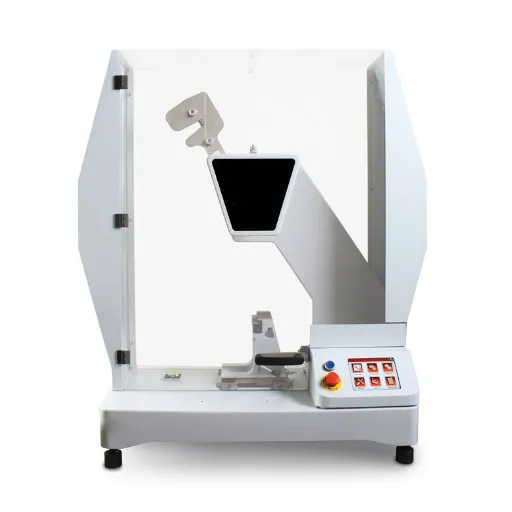
Tensile Testing and Its Importance
Tensile test and its importance Tensile testing is a basic testing method to know the mechanical properties of polymers. It tells how the material responds to forces that attempt to stretch it into being. Applying it is a view of strength, elasticity, and ductility. In tensile testing, a force is applied to the specimen up to fracture while recording the stress and strain experienced by the material; such data goes into finding out the value of ultimate tensile strength, yield strength, and elongation at break.
What makes tensile testing important is its ability to predict the performance of polymers in real scenarios. An understanding of the behavior of materials when subjected to a load becomes paramount to safety and reliability in applications in fields such as automotive, construction, and healthcare. For instance, polymers employed in load-bearing parts must have enough tensile strength to avoid a mechanical failure occurring during service, whereas more flexible applications might require elongation and ductility.
Moreover, tensile testing plays a role during product development and quality control. When the mechanical limitations of materials have been identified, manufacturers can deem it fit to choose which polymer is suitable for a certain application. Also, repeated testing assures constant quality and conformity to industry standards, which aids credibility and dependability on the part of the users. Thus, it is in a primary way involved in developing safer, more effective, and longer-lasting polymer-based products.
Impact of Mechanical Properties on Applications
Mechanical properties of polymers are, therefore, considered a very important criterion for material selection for a given application. The properties, such as tensile strength, elasticity, toughness, and fatigue resistance, basically govern the working and service life of any polymeric product. For example, a polymer with high tensile strength can be used in construction, while a substantially elastic polymer may find uses in rubber seals and flexible tubing.
Mechanical properties enable their polymers to cope with external forces and environmental conditions. Thus, a polymer must keep its integrity without deformation or failure under long exposure to stresses, because its areas of application include extremely harsh environments like the aerospace and automotive industries. On the contrary, polymers for the medical field-such as prosthetics or surgical instruments supposed to be firm and at the same time biocompatible to ensure the safety and comfort of the user.
Manufacturers, through optimization of mechanical properties, could design polymers that would best suit their needs to maximize performance and utility. Such an approach enables various industries to offer innovative solutions while fostering safety, efficiency, and sustainability across an ever-growing application spectrum.
ASTM and ISO Standards in Testing
Consistency, reliability, and safety of materials in every application are a prerogative of ASTM and ISO standards. These standards act as the universal criterion for testing methods, whereby producers or researchers can well and truly test the physical, chemical, or mechanical properties of the materials. By using these standards, industries can guarantee their product complies with the stringent quality and performance requirements.
ASTM (American Society for Testing and Materials) is an organization that develops testing standards used in a particular industry, especially construction materials, medical devices, and aerospace standards. Test procedures and methods describe how to test a material for one or more properties, such as tensile strength, hardness, or modulus of elasticity. ASTM standards uniformly describe testing procedures, and this enables one to compare different test results and maintain product integrity.
ISO (International Organization for Standardization) sets safety and quality standards for production so products with these standards honor efficiency and interoperability. While ASTM standards tend to remain within the confines of the United States, ISO standards have more of an international perspective governing the issue of goods and materials at the global level. Together, ASTM and ISO standards basically offer a dependable starting point for the test and validation of materials and consider the innovation and trust of the industries involved. Compliance with these standards means that materials work as intended and help in providing the final product with safety and sustainability.
Testing Equipment and Machines
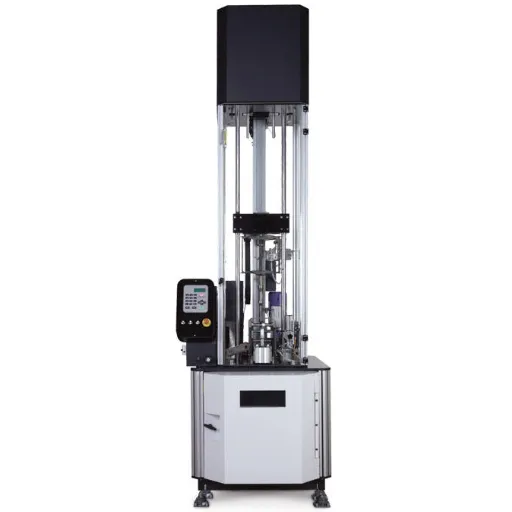
Overview of Polymer Testing Equipment
Polymeric materials, when employed in sundry industries comprising automotive, aerospace, construction, and sometimes even healthcare, need to be tested for quality, durability, and performance using polymer testing equipment. The machines are used to determine their tensile strength, elasticity, impact resistance, thermal resistance, and resistance to some chemicals for material optimization and meeting industry standards.
Important types of polymer testing machinery:
- Universal Testing Machines (UTM): Great tensile, compression, and flexural tests give performance properties from polymers like yield strength, elongation, and modulus of elasticity. The machines are well known for their accuracy and versatility used in the characterization of polymers.
- Differential Scanning Calorimeters: A DSC measures the thermal properties of polymers, such as melting point, glass transition temperature, and heat capacity. All this information is of utmost importance in assessing material response time to temperature changes.
- Dynamic Mechanical Analyzers: With DMAs measuring viscoelastic properties, manufacturers will be able to comprehend how polymers behave under stress, strain, or temperature changes in time.
- Impact Testers: The machines test impact resistance for polymers, a parameter that serves applications in need of durability when sudden forces are applied.
- Rheometers: Rheological testing equipment determines the deformation and flow behavior of polymer melts, providing insights into their processability during manufacturing.
- Hardness Testers: Instruments such as Shore hardness testers assess the surface resistance of polymers to indentation to verify their endurance during working conditions.
Calibration of Testing Instruments
Calibration of testing instruments is necessary to achieve accurate and reliable measurements; hence research in polymer materials is limited by lesser variability in quality relations. Periodic calibration aligns an instrument’s measurement with a predetermined standard or a reference value so that its output is uniform. Data gathered without proper calibration may turn into a wrong evaluation, the product may not perform as expected, and sometimes it may fail in safety.
In the calibration process, the instrument reading is compared with a known standard from organizations for certified standards. In the case of deviations, actions are taken to limit the performance of a system so that it does not exceed established limits. This exercise is important from the standpoint of adhering to industry-accepted standards and regulations while promoting confidence in the testing process and the resultant product.
To hold testing instruments to a standard of precision, it is wise to follow the accepted schedule of calibration activities or at least use a certified calibration service. The storage and handling of these instruments can also preserve their accuracy. Laboratories and manufacturing units will be ensured of dependable and repeatable testing procedures if these practices are enforced, thereby furthering the product quality and goodwill of satisfied customers.
Choosing the Right Testing Machines
The art of choosing testing machines involves assessing the specific requirements of your operation and the materials for testing. Ideally, begin with the testing that you would require and ensure that the machine conforms to work for strong and reliable measurement of those tests. Sometimes one has to measure tensile strength; other times, it can be hardness, and so one must select testing machines that conform to their accuracy and ranges for their application.
Consider the ease of operation and its compatibility with existing processes. Foolproof interfaces paired with easy and intuitive software and instructions will help the ultimate efficiency return low error from the operator. It must also fit well in the everyday workflow without any disruption to productivity.
Ans. Examine the machine’s durability; maintenance costs; standard maintenance interval, after-sales installation and/or operation, or specialty gear. A test machine that can stand the test of time and promises technical support will save you time and resources in the long run. Proper research and determination of these indices will ensure you have invested in a testing machine that upholds quality control and adequately fulfils operational requirements for which you bought it.
Applications in Various Industries
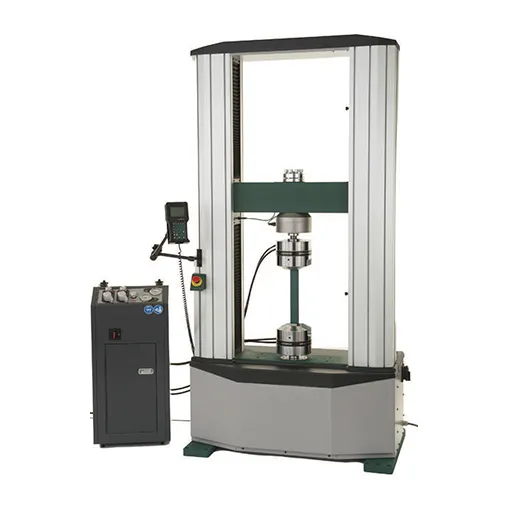
Polymer Testing in the Automotive Sector
Polymer testing plays a crucial role in the automotive sector where material performance and durability are used for safety, efficiency, and longevity. The term ‘polymers’ is applied to different varied substances that find their uses in the production of vehicles owing to their light-weight nature, versatility, and corrosion resistance properties. Testing helps manufacturers determine the specific mechanical, thermal, and chemical properties of materials to conform to industry requirements for strength, flexibility, and heat resistance for automotive applications- panels, seals, and interior parts.
These polymer testing regimes often center around determining the material’s ability to withstand environmental challenges in the automotive industry: temperature fluctuations, UV radiation, automotive fluids, etc. Thermal-aging tests, for example, can assess polymeric materials’ behavior at high temperatures for a long duration, whereas UV degradation tests assess resistance to exposure to sunlight. Essentially, these testing procedures are designed to determine whether polymers can stand up to exposure and continued performance throughout the life of the vehicle, minimizing the chances for premature failure and expensive repair.
Secondly, highly specialized polymer analysis is key to innovations and sustainability within the realm of the automobile sector. High-performance polymers and composites are, therefore, being used more and more by manufacturers while engineering weight reduction for fuel efficiency and emissions reduction. Test programs ensure materials perform as expected and comply with environmental regulations with consumer safety issues. Having reliable test methods, the industry will continue to evolve in the use of polymers, thus improving upon vehicle performance and environmental impact.
Aerospace Applications of Plastic Testing
Due to stringent performance requirements on aircraft and spacecraft, aerospace uses plastic testing as a special constituent. Lightweight plastics and composites are therefore used to reduce the weight of aerospace vehicles, thereby enhancing fuel efficiency and payload capacity. Testing ensures that these materials can indeed survive the extremes of temperature and high pressure during the flight and space mission, if mechanical stresses are not considered.
Properties tested include tensile strength, impact resistance, thermal stability, and flame retardancy, all of which are of utmost importance to aircraft safety and reliability. For example, materials used in cabins, wings, or fuselages are tested for resistance to fast changes in temperature and pressure circumstances, which is just so commonplace in an aerospace environment.
UV-radiation exposure, chemical attacks, and the operational wear-and-tear situations are environmental conditions under which plastics must withstand degradation. Without testing and assessments, aerospace materials shall never be assessed for longevity and safety in use. Strict testing standards ensure that the aerospace industry places a premium on plastics for performance, safety, and efficiency, thereby providing a viable platform for the advancement of aviation and space exploration.
Medical Devices and Polymer Analysis
Polymer substances are involved in modern medical devices. Their vast variety, compatibility, and easy tailorability place polymers in essentially everything from minor surgical implements to highly advanced prosthetics. Other areas where polymer substances are employed include drug delivery systems in which precise and controlled release of the drug is ensured by the polymer substance, thereby improving patient care.
One very important factor in ensuring the use of polymers in medical devices is strict analysis and testing. The materials must be forced to meet stringent regulatory standards that ensure the material is safe, non-toxic, and may be subjected to different situations. Tests may be conducted on parameters such as chemical stability, mechanical strength, and environmental resistance to moisture, heat, and others, to name a few. Without these tests, their performance could be compromised, especially in critical areas like implants and diagnostic instruments.
Research advances in polymer science drive innovation in medicine. Consider, for example, the investigation into biodegradable polymers for temporary implants that dissolve in the body and soften the blow of a multitude of extra surgeries. Smart polymers are now being used for innovative therapeutic applications under stimuli such as heat or pH changes. Such developments restoratively depict the nexus of polymer analysis for improving health technology and patient care.
Challenges in Polymer Testing
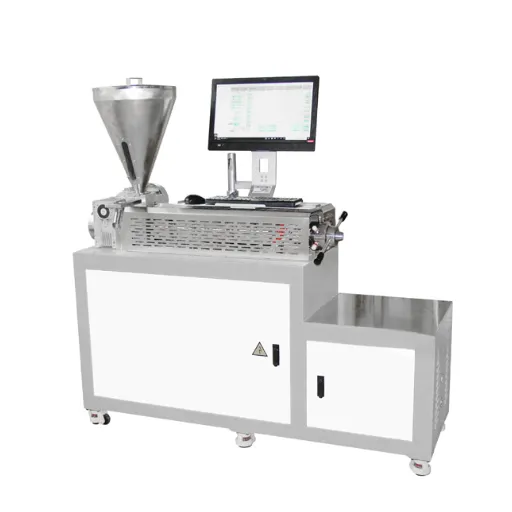
Managing Complex Material Properties
One of the key challenges in polymer testing is to address the complex and varying material properties inherent in polymers. Polymers do behave now elastic, now plastic, and now viscoelastic with one material being subjected to a certain set of conditions and procedures with respect to its composition and structure. It is these very behaviors that need to be taken into consideration in matters of testing so that reliable results can be obtained repeatedly.
Polymer testing instrumentation plays a major part in serviceability. Instruments like rheometers, differential scanning calorimeters, and universal testing machines are used to analyze properties such as tensile strength, thermal stability, and viscosity. Accurate measurements, in turn, would allow the researcher or the manufacturer to customize polymers for specific uses-from medical applications to industrial ones. A set of testing standards for the code implementation ensures competence in measurements between studies and industries.
Proper utilization of such instruments and standard testing methods will sufficiently tame the complexity exposed by polymer material properties to the end of creating safer, more efficient, and novel polymers that fulfill the demands of multiple applications while still accounting for quality and reliability.
Ensuring Regulatory Compliance
It is a general requirement for polymer testing to be conducted according to industry standards and governmental regulations to ensure the safety, quality, and performance of polymer materials. Standards such as ASTM International or ISO specify test methods, interpretation of data, and performance criteria. Complying with such regulations ensures reliable materials and thus reduces risks related to possible penalties due to noncompliance or costly recalls, which businesses can ill-afford.
Compliance relating to polymer-testing instruments involves ensuring that equipment is calibrated, valid, and capable of rendering results per regulatory requirements. Also, there is a necessity for maintenance and validation of instruments from the performance point of view to meet such standards. Laboratories should subsequently have a quality-management system put in place that covers routine checks, standard operating procedures, and auditing so that every step of the testing process is conducted in accordance with regulatory expectations.
This fact often remains the third important one. A regulatory body enforces strict compliance with recording every testing activity. Proper record-keeping establishes traceability of results so parties can quickly resolve disputes or an investigation. Such a regulatory oversight instills confidence in the quality of polymers in industries such as automotive, healthcare, and construction, where failure to meet standard specifications can lead to serious consequences. If businesses consider the gains from compliance and quality control, they will be meeting the legal requirements as well as the trust of consumers.
Optimizing R&D Processes
Polymer testing instrumentation contributes highly towards optimizing R&D processes, aiming at material analysis with utmost efficiency and accuracy. For instance, one may use these state-of-the-art testing apparatuses to test polymers quickly for such properties as tensile strength, elasticity, thermal stability, and chemical resistance. Having this data at their disposal, teams can make decisions regarding the development or improvement of polymeric materials in accordance with specific performance requirements.
Having testing methods that are correct for polymers and trustworthy greatly shortens experimentation based on hit and trial, thus bringing about faster product development cycles. Instruments that perform automated testing can keep workflows efficient by providing consistent and reproducible results while minimizing sources of human error. Having the information from the analysis with detailed reports can allow teams to focus on innovation rather than working to troubleshoot or do manual calculations.
Further enforcing industry standards and regulations can only be done by any system of polymer testing instrumentation, which provides transparent validation of material quality, satisfying these standards not just for legal reasons but also on the consumer trust. Thus, being capable of bridging efficient R&D with regulatory requirements will be an added measure of the sustainability and competitiveness of this kind of business in industries like automotive, healthcare, or construction.
Frequently Asked Questions (FAQ)
Q: What is polymer testing instrumentation for polymers?
A: Polymer testing instrumentation for polymers means the instruments and equipment for testing a polymer’s properties and behavior. These tests include elastic mechanical properties, viscosity measurement, and melt index so that one can find out if the raw material or the finished product complies with a prescribed standard.
Q: What are the different kinds of polymer testing instruments used?
A: Popular polymer testing instruments include tensile testers, melt flow index testers, viscosity measuring instruments, and adhesion testers. These testing instruments determine the mechanical properties and processing conditions to allow the polymer to meet the demands of the plastics industry.
Q: What dosage does polymer testing give to intrinsic viscosity?
A: Giving insight into molar mass and solution flow properties of polymers, intrinsic viscosity is a prime test in polymer characterizations. This and the like-side test is crucial for quality-checking of a polymer and determining the capability of said polymer for use in different aspects, especially in the textile and coating industries.
Q: What importance do testing laboratories enjoy in polymer analysis?
A: Testing laboratories in polymer analysis ensure test quality through testing methods, standards, and procedures, including ASTM, ISO, etc. Testing laboratories have polymer testing instruments and thereby conduct proper polymer sample evaluations to assure the manufacturer of quality.
Q: What applications does polymer testing instrumentation have?
A: Polymer-testing equipment is applied for a wide range of applications, including quality control in the plastics industry, research and development for new polymer products, and process control on polymer processing. These instruments ensure that materials conform to specified consumer product and industrial standards.
Q: How do polymer-testing machines measure thickness accurately?
A: Polymer-testing machines have advanced types of sensors and measurement technology that ensure polymer materials are measured for thickness accurately. This ability for quality assurance is crucial, especially for applications where material thickness impacts product performance, such as coatings and textile manufacturing.
Q: What significance does adhesion testing hold in the evaluation of polymer products?
A: Adhesion testing checks for the strength of the bond between polymer layers or between a polymer and some other medium. This testing determines the durability and performance of polymer products and whether they meet the standards for high impact resistance and use in other applications.
Q: How can a manufacturer validate the performance of polymer solutions?
A: The manufacturer validates the performance of his polymer solutions by means of full-scale tests, which include mechanical and physical testing. To make sure that the products will perform as intended in their applications, polymer testing instrumentation is used to assess properties such as shear strength and viscosity.
References
-
Polymer Testing Instruments – A comprehensive resource for various polymer testing devices like durometers, rheometers, viscometers, and tensile testers.
-
AMETEK Polymer Testing Solutions – Specialists in materials testing instruments, including intrinsic viscosity (IV) measurement tools.
-
Dynisco Polymer Analysis & Characterization – Offers advanced polymer analysis and characterization equipment.
-
EAG Laboratories – Polymer Chemistry – Provides insights into analytical instrumentation used in polymer testing, such as FTIR, TGA, DSC, and more.
-
Polymers Center – Testing Materials Analysis – Conducts polymer resin analyses using state-of-the-art equipment in their testing laboratory.

